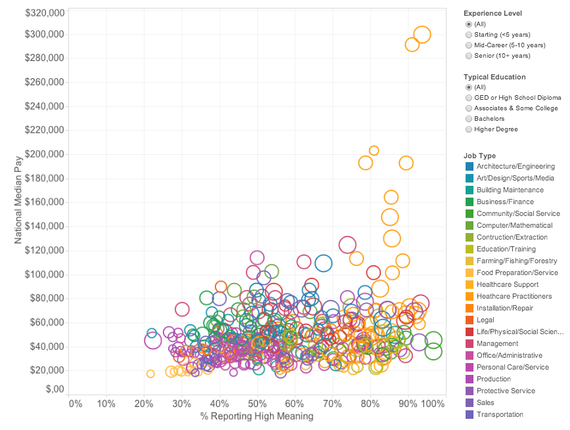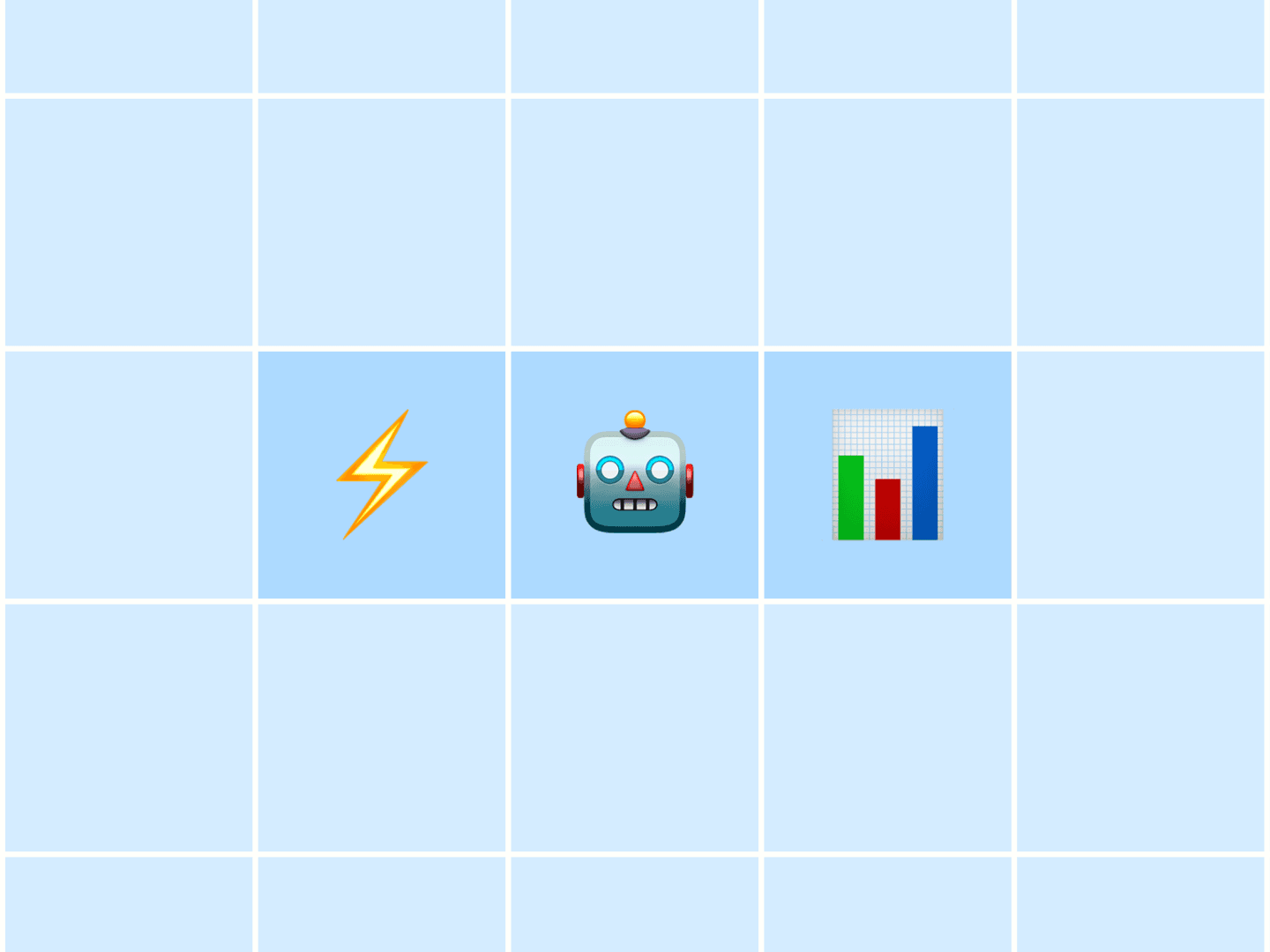In the book, Outliers, Malcolm Gladwell provides a unique blueprint to understanding the success of such monolithic figures as the Beatles and Bill Gates.
In one section, Gladwell illustrates the life of a Jewish immigrant family who came to New York after fleeing the Nazis in Europe. Despite such difficult circumstances, they found tremendous hope and meaning in starting a garment business together:
“When Borgenicht came home at night to his children, he may have been tired, but he was his own boss. He was responsible for his own decisions and direction. His work was complex; it engaged his mind and imagination. And, the longer he and Regina stayed up at night sewing aprons, the more money they made the next day on the streets.”
To me, this truly embodies the beauty of meaningful work.
If your work is something you love, it will give clarity, drive, and happiness to all aspects of your life. If your work is meaningful, you’ll be more likely to stick with it in the long run, which means you’re more likely to be successful as a result.
Research has shown that finding meaning in one’s work increases motivation, engagement, empowerment, career development, job satisfaction, individual performance, and personal fulfillment.
But not everyone is experiencing the joy of meaningful work. According to Gallup's State of the American Workplace, only 30 percent of workers in the U.S. are engaged in their work—70 percent are either “not engaged” or “actively disengaged” in their work.
How can anyone create the conditions for meaningful work, no matter their job?
How to create meaningful work in any position
As someone who spent countless hours building a product that nobody wanted before starting my own consulting business (thankfully more successful than my first product) and launching an online course business, I’ve become very familiar with what makes work meaningful.
I’ve found that if you want your work to be more than a job and instead a positive force in your life, you need three things:
- Autonomy: Being in control of our own choices
- Complexity: Being able to master new skills and improve
- Direct connection between effort and reward: Seeing the payoff—whether financial, spiritual, or other—of your work
Once these three distinct factors are built into your work routine, you will likely find yourself happily performing in the quasi-mythical Meaningful Work Zone.
For example, let’s look at one profession whose members are most likely to experience those conditions regularly: Doctors.
A study from the online salary- and benefits-tracking company PayScale found that doctors rated their jobs as the most meaningful of all professions surveyed. With a feeling that their work makes a difference (autonomy) and often complex work, doctors also see higher pay—a direct connection between effort and reward.

Even if you’re not a doctor, you can create these conditions in your own work life. Let’s look at each condition and some ideas to help achieve it, no matter your work situation.
1. Autonomy: How to be your own boss at any job
Never before in the history of work has it been easier to be your own boss. Even within the corporate world, there is a movement away from conventional management tiers towards greater autonomy, which allows for more innovation.
When you’re the captain of your own ship, you are much more fully invested in the direction it’s heading. The same is true of your career trajectory.
Science has discovered that making our own decision invigorates while having our decisions controlled by others can drain us of energy.
If you decide to start your own business, take on new roles at work or explore the possibility of launching a side project, you’re taking your destiny fully into your own hands. With greater autonomy comes greater responsibility for your own success and greater flexibility to do what you love most.
Ideas for more autonomy at work
- Ask for more flexibility: If your job permits, ask for a test trial of working from home one day per week for a month. Show that you can outperform on that one day you work from home, and your boss will buy in pretty quickly. If you do this well, you can gradually increase your remote working time with the results to prove you’re more effective when you have a bit more freedom of location. If you don’t ask, you’ll never know.
- Seek autonomy outside of your “job”: I personally get much of my satisfaction through freelance and personal projects that engage me in different ways than my work. In building out my own online course, I’m deeply invested in making that content as useful as possible to my audience, because I’m going to have to stand behind it 100%.
- Own and/or redefine your work: Even those in traditionally lower-status jobs can find opportunities to “own” their work by influencing and building trust with others—sometimes they’re more able to do so than people at higher ranks. If you find an area you’re passionate about at work, don’t be afraid to ask to get involved.
The next crucial aspect of meaningful work is to use your autonomy to pursue something that tests you – something that makes you grow and learn.
2. Complexity: Feeling challenged but in control
In the same section of Outliers referenced above, Gladwell asks a discerning rhetorical question:
“If I offered you a choice between being an architect for $75,000 a year and working in a tollbooth every day for the rest of your life for $100,000 a year, which would you take?”
Even for less money, being an architect likely presents challenges and complexities lacking in a career as a tollbooth worker. I would choose this any day of the week.
Inevitably in life and in work, there are obstacles to overcome. It’s what makes us grow and discover our passions.
Whether you’re developing an app, convincing a client to sign on the dotted line, or even painting a landscape, many of the things we find challenging also give us immense joy. There is nothing like the satisfaction that comes from achieving something difficult. Life would be immensely boring if we didn’t fail, if we were never rejected, or if we knew the outcome of everything before we even started.
In order for your work to be meaningful, it needs to challenge you, even keep you up late at night sometimes (but not all the time).
Of course, you don’t want it to be all pain and frustration. Work would become unbearable if nothing was achieved. Yet so much of the joy of success is not just from finally reaching the summit, but from being able to look back down the mountain and see how far you’ve come.
Ideas for more complexity at work
- Incorporate your passions and challenge yourself: If you’re doing something you’re truly passionate about, it doesn’t feel much like work—you enjoy it. Not everything I do as part of my job is something that I’m passionate about, but one thing I really do love is writing. I’m lucky. From the very beginning at CreativeLive, I’ve made sure to dedicate time for myself each week to work on writing projects that also benefit my goals as a marketer. The point is, to find something that you can love within your job and seek to improve at it.
- Be the best at what you do: I’m very competitive and view goal setting as a challenge—a chance to set the bar high for myself. Whether this means closing the most sales in your department or ushering through the most cars at your toll booth, motivate yourself to achieve at a high level, and you’ll experience the benefits. I’ve found that when I have to stretch to achieve a goal, I enjoy the work much more than if I were to be arbitrarily floating around without an exact target. Set ambitious goals and map your process to achieving them.
3. Direct connection between effort and reward
We all need some sort of tangible reward for our efforts—the positive feeling and satisfaction or compensation that comes from creating a valuable product or service.
When you pour countless hours into your work and know that as a result of your efforts, you will be able to afford a comfortable home, achieve the respect of your peers, or find a path to your desired lifestyle, you have an even greater incentive to keep working.
In some cases (when you know you’ve found the right work for yourself), work is inherently rewarding. You need look no further than Vincent van Gogh, who sold only one painting during his lifetime and died penniless. If he didn’t experience a great feeling of reward from creating his works of art, he would have quit painting early on. (He probably could’ve used another sale or two, though.)
Luckily, you don’t have to be van Gogh—you can find both meaning and financial stability in your work.
Ideas for more direct connection between effort and reward at work
- Track your efforts: In my job, I naturally need to track the performance of everything I try in marketing our classes at CreativeLive. I use a combination of spreadsheets, performance dashboards (like Tableau), and Google Docs to track my marketing campaigns. This helps me see the daily, weekly, and monthly return on everything I’m doing—thus incentivizing me to work smarter with the limited time I have.
- Work for yourself: There’s no better way to see the exact, tangible effects of working hard, staying up late, or working weekends than seeing more dollars into your bank account.
- Seek feedback: Learn how you can make more meaningful contributions to your team—or what you’re already doing that others really appreciate—by proactively seeking feedback from those you work closely with.
How do you pursue meaningful work?
Whatever kind of work you do—whether you’re self-employed, working for someone else, or something in between—what you do can be a big part of your life.
If these three factors are present, it’s my belief that you have a much better chance of making your work meaningful.
And if you can find meaning in your work, you’re well on your way to being the best possible version of yourself.
Is your work meaningful to you? How do you make it meaningful? How can more companies and leaders learn how to create meaningful workplaces? Let us know on Twitter @buffer.
Try Buffer for free
190,000+ creators, small businesses, and marketers use Buffer to grow their audiences every month.


